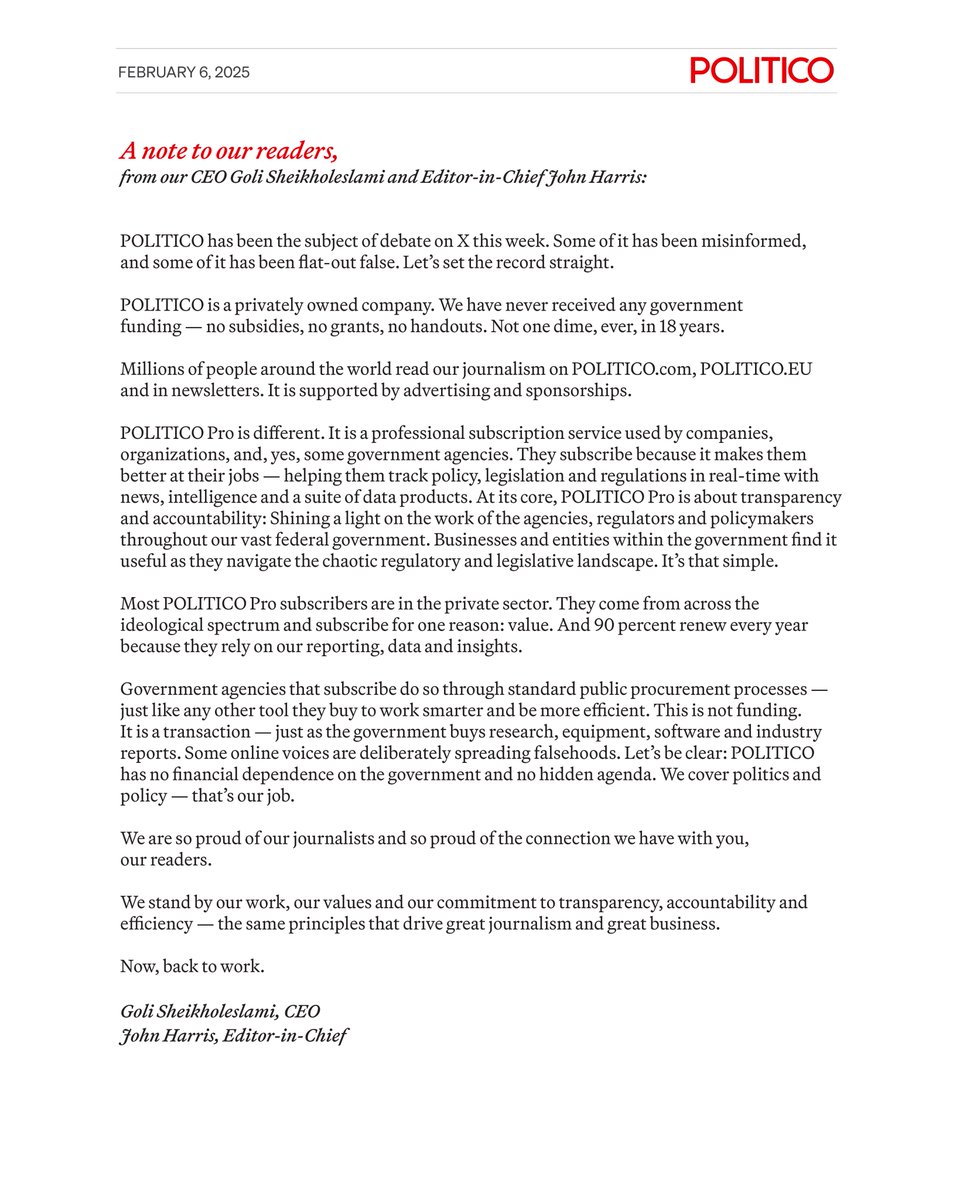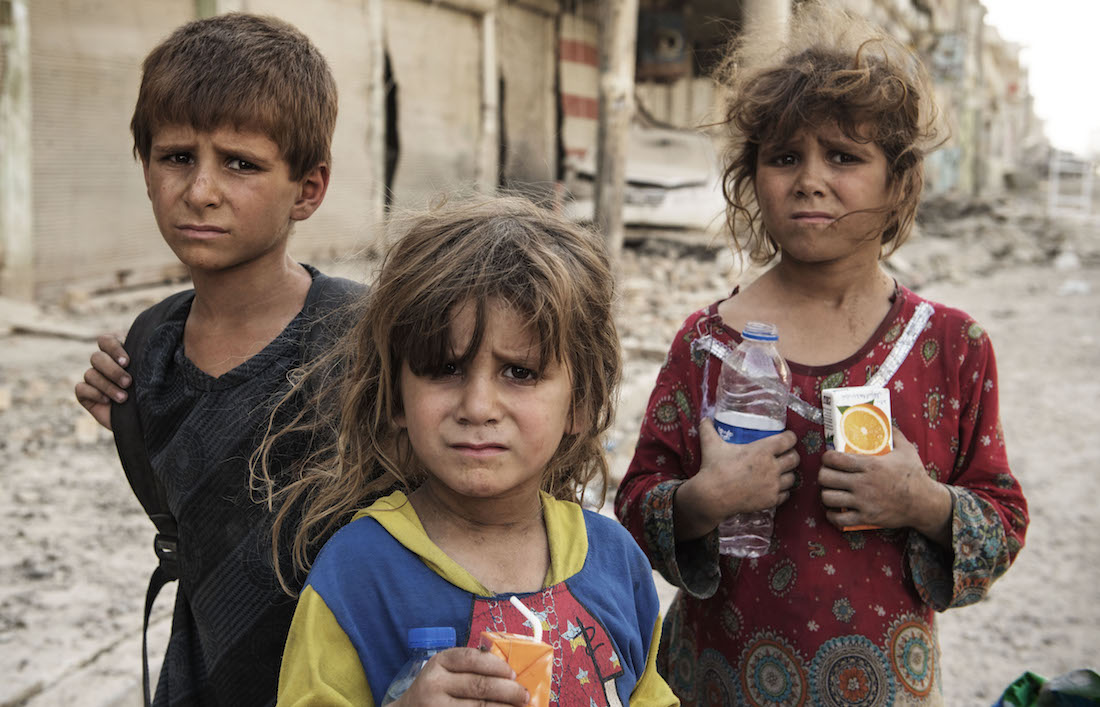
Gypsy Guillén Kaiser
@GypsyStrategy
Followers
3K
Following
106K
Statuses
22K
Advocacy & Communications Director @PressFreedom | Previously at UN Women, @anticorruption | Seeking structural change, enduring justice. Views personal.
NYC via 🇩🇴
Joined May 2014
RT @pressfreedom: 2024 Highlights | @CPJAsia's @behlihyi spoke to Sebastien Lai before his father, media publisher Jimmy Lai, took the stan…
0
12
0
RT @pressfreedom: Many of the journalists in CPJ’s 2024 census have been sentenced to spend significant parts of their lives in jail. Journ…
0
2
0
RT @ianbremmer: foreign aid isn’t just charity. it… -grows markets for american business -protects the united states from spread of global…
0
316
0
RT @davidfolkenflik: Pentagon Press Association: shocked and disappointed that DoD is doubling down on dislodging press orgs after concerns…
0
66
0
RT @jherrerx: What happens after the raids? I went to Cactus, a tiny meatpacking town in the Texas Panhandle. The largest ICE raid in US h…
0
314
0
RT @GermanyDiplo: “Jointly upholding the international legal order and international jurisdiction is not only our best life insurance polic…
0
313
0
Information doesn’t flow magically. Useful facts must be researched and confirmed. Otherwise, it’s just a pile of incomplete, insensible tidbits. Don’t take the free press for granted. #PressFreedom is your freedom ❤️👇
An independent media is vital for democracy. Access to information enables all people to make decisions and hold the powerful to account. A world without journalism is a world without truth. #JournalismMatters
0
0
0
RT @brianstelter: New NYT statement: "It was surprising to see social media attention on the fact that a small number of government offices…
0
102
0
RT @politico: A note to our readers, from Politico CEO Goli Sheikholeslami and Editor-in-Chief John Harris:
0
1K
0
Some REAL NEWS about journalists 👇👇👇
CPJ recorded at least five journalists behind bars in Tunisia as of December 1, 2024, as the country used a new cybercrime law to jail the highest number of journalists since CPJ began keeping track in 1992. Read more: #JournalismIsNotACrime #FreeThePress
0
0
1
RT @AP: CBS' "60 Minutes" released a full, unedited transcript of its October interview with Democratic presidential candidate Kamala Harri…
0
75
0
RT @ZoeTillman: New: A group representing thousands of US doctors is suing the Trump administration over the sudden removal of public healt…
0
2K
0
RT @dwnews: At least 160,000 people took to the streets in Berlin to protest against a CDU-AfD collaboration to push through a migration bi…
0
126
0
@MichaelSctMoore They’re not entitled to do anything. It’s concentration of power to an extreme.
0
0
0
So important to ensure that faith is not manipulated as an instrument of exclusion and discrimination. Thank you, @JamesMartinSJ 🙏
I’ve noticed some pushback for commenting on Jesus’s Parable of the Good Samaritan and how it asks us to care for the stranger. Some people have pointed to St. Thomas Aquinas’s traditional “ordo amoris," or order of love, to say that we should take care of our family first, then the community, then the nation and, only then, people like refugees or migrants, i.e., strangers. What’s going on? Well, in the "Summa Theologica," the great summation of his theology, Aquinas asks and answers a long series of questions on love: for example, whether you should love a parent more than your children or a spouse. It’s an “order,” as in a sequence, of love. And it’s mainly, though not exclusively, for within the household. But Aquinas’s reflections, which are in part a meditation on Augustine and Aristotle, are not meant to tell us who to exclude, but primarily for reminding people what to do in families. Today, unfortunately, it’s being used to say, “Well, just focus on those closest to you, and whatever is left over, then maybe we can help the stranger." Even if you love Aquinas and Augustine (which I do), and even if you interpret it that way (which I don't), the Summa doesn’t take precedence over the Gospel. Jesus’s command to love the stranger is not just a theological reflection, and not just an important part of our tradition, it's Divine Revelation. Jesus tells us clearly that at the heavenly gates, we are going to be asked if we welcomed the "stranger": that is, someone who is not part of our family, someone we don’t know. That's how we will be judged, as he says in Matthew 25. The early church of course practiced this welcoming--especially of the migrant, because Christianity often flourished in cities that were near ports. No one in the early church thought that the call to discipleship was to take singular care of your family and then give strangers the leftovers. It was in fact all about redefining the idea of both family and neighbor and showing mercy to those in need. Recently, I asked a Catholic moral theologian about all this and he said, “We have to remember this is the Summa, not the Gospel. Matthew 25 has a greater claim on us than the Summa." In the Gospels, Jesus often challenged the notion of family first. As surprising as it is to hear today, and as challenging as it is to the status quo, Jesus was about creating a new sense of family and, moreover, a new sense of who our neighbor is. A few days ago, I mentioned the story of Jesus's family coming to "seize" him in Capernaum. But when Jesus is told that his family has arrived, he says, "Who is my mother, and who are my brothers?” And pointing to his disciples, he said, “Here are my mother and my brothers! For whoever does the will of my Father in heaven is my brother and sister and mother" (Mt 12:48-49). But the clearest, and bluntest, example is when a man says that he wants to follow Jesus but has to bury his father first, one of the most essential, and most sacred, filial duties for a son at that time. Does Jesus say, “Oh, yes, the 'order of love' says do that first"? No, he says, “Let the dead bury the dead! But as for you go and proclaim the reign of God” (Lk 9:60). You can't get clearer than that. As Daniel J. Harrington, SJ, the New Testament scholar, told me once, "For Jesus, ties to the Father were more important than ties to the family." So it’s not about the selective love of family, but about a new kind of family. And within that family is the stranger, the migrant, the refugee. And I’ll bet that Aquinas and Augustine would agree.
0
0
0







